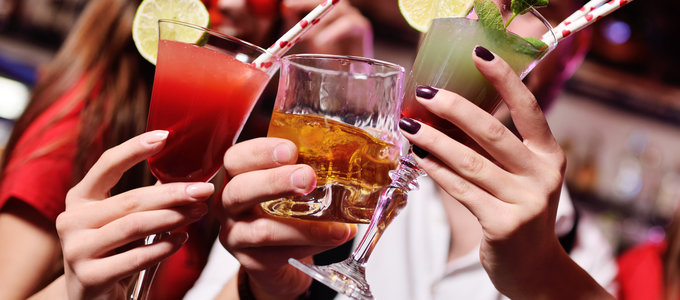Work Parties – ditch the alcohol

It’s 2020 and Boris Johnson and Downing Street staff are criticised for drinking and socialising too much at ‘Partygate’ when they should have been following the Covid rules, and in April this year the CBI business lobby group was plunged into PR crisis following two allegations of rape at a work event and other sexual misconduct at the organisation, the CBI admitted originally failing to fire staff who had sexually harassed female workers (The Guardian news) but subsequently dismissed a number of people [BBC news].
Opinion Shift
We ask - Has all this inappropriate behaviour ruined it for the majority of working people who don’t get drunk at the staff party and who do keep their hands to themselves but who do like to have a few alcoholic drinks? The answer is probably ‘Yes’.
Alcohol Banned
The results of an April survey announced in May by the Chartered Management Institute [CMI] and highlighted by the BBC, indicates that a booze-up Christmas bash might be a thing of the past.
A total of 1,009 managers took part in the CMI's poll, which was conducted between 20 and 26 April 2023. The questions on work parties were asked as part of a survey regularly sent out to the CMI's membership.
The survey found:
-
a third of managers reported to have seen harassment or inappropriate behaviour at parties
-
33% of women were likely to say they had witnessed this behaviour, compared with 26% of men
-
42% said work parties should be organised around activities that don't involve alcohol. Younger people, aged between 16 and 34, were most likely to say this.
The CMI chief executive, Ann Francke, told the BBC that socialising with colleagues is "a great team building opportunity" that many people enjoy. But she added that managers have a responsibility to keep inappropriate behaviour in check, and to ensure there are safeguards in place. "Alcohol doesn't need to be the main event" at parties. "That might mean adding additional activities alongside alcohol, limiting the number of drinks available per person or ensuring that people who are drinking too much are prevented from acting inappropriately towards others."
The Changing View of Alcohol
With many more people abstaining from alcohol altogether (23% 16-24 year olds, 21% of 25-44 year olds*), organising a boozy Christmas party is starting to become a tradition of the past.
The Employer’s Dilemma
-
It’s hard to monitor consumption
It is incredibly difficult for employers to police the consumption of alcohol by their employees at work parties and social events so that their behaviour whilst drinking doesn’t impact on others - alcohol is known to change a person’s behaviour. A person who is pleasant and sober at work, can become a Jekyll-and-Hyde personality after a few alcoholic drinks causing damage and embarrassment to themselves and the people they work with. Worst case, people are physically abused by them.
-
Employers are responsible for their employees’ actions
Whether it is abusive language, physical abuse, sexual misconduct or even rape, the role and responsibility of the employer is to keep all employees safe. This becomes far more difficult when alcohol is in the equation.
The Law and Alcohol at Work - Misconduct
There is no law that currently dictates the alcohol consumption of employees at social events, but there is a law that can stop them abusing others – it’s called gross misconduct. Those found to have demonstrated and been found guilty of gross misconduct can be dismissed without notice. Employers need to consider alcohol-related gross misconduct and include clauses covering this in employee guidelines and contracts, setting out the standards expected of employees.
Conclusion
Inadvertently, Boris Johnson’s actions have actually set the ball rolling for a more ‘conservative’ approach to enjoyment at work parties where, traditionally, employees might have been encouraged to let their hair down, have a good drink, relax, and potentially embarrassing themselves or others.
Now, a staff social party is under a huge degree of scrutiny and the employer is under the microscope for being seen to do the right thing, policing those who cannot restrict themselves and with the responsibility to protect all employees from harm.
So, this Christmas, you might start to see fixed levels of alcohol consumption, no more free bars and a growing respect for fellow work colleagues and the teetotal.

Vaishali Thakerar, Director & Head of Employment
Lawson-West Solicitors, Leicester
“It makes you think, doesn’t it? You want your team to have a great time and let their hair down, but you are responsible if their behaviour becomes uncontrolled. Restricting the levels of alcohol consumed is going to become the norm and the employer’s role is to create a safe environment for everyone at all social events without fear of intimidation, harassment or violence.”
*ONS Drinking statistics Adult drinking habits in Great Britain - Office for National Statistics (ons.gov.uk)
View all

